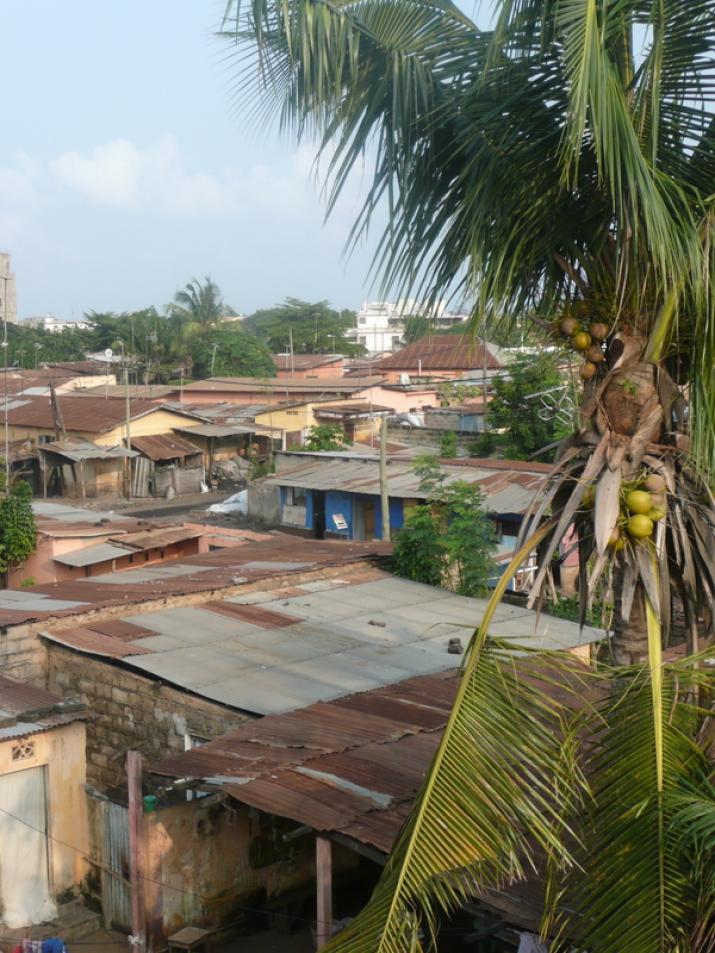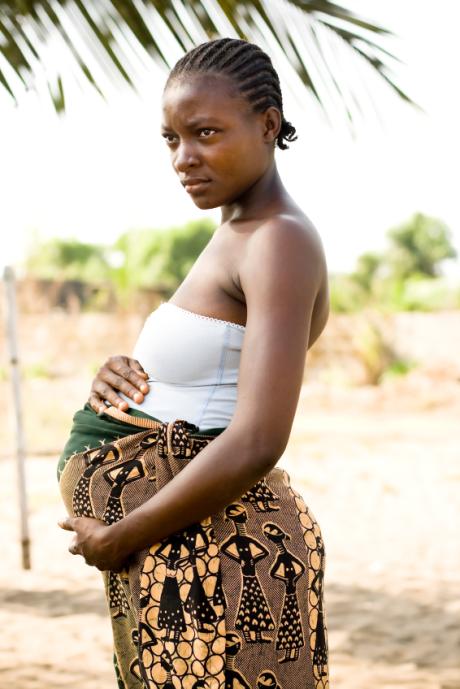By: Aubrey Frazzitta
Candidate for B.S. in Biology, B.A. in Visual Arts,
minor in Chemistry
After five days in Lomé, I was finally able to move in with my host family! Situated in the most bustling and densely packed quartier of Lomé, my home in Bé is giving me plenty of opportunities to practice my French and learn the local language, Ewé. With this area being the center of the political opposition for the past and current presidents of the country, I am learning a great deal about politics and especially how they are influencing health care for the country.
The father of my homestead, Manu, is the pastor of a Pentecostal church. The family (including his wife, two daughters, two girls who are working in the city from the Southern villages, sister in law, brother, and mother) is absolutely wonderful. Everyone is so thoughtful in looking out for of my health, safety, and happiness; they are constantly helping me to arrange taxi motos (motorbike taxis ubiquitously used throughout the city) and negotiate prices for goods. With the hospital strike in full force (only minimal service being offered for emergency cases), there was not a lot of work for me initially to do in the hospital.
However, this provided me with a wonderful opportunity to converse with doctors, nurses, and midwives about their experiences in the hospital. In addition to learning about the ailments clinicians see most often, I was able to hear the perspectives of many health workers about the strike and Togolese medicine in general. The aim of the strike was to gain more insurance for accidental body fluids exposure within the hospital. After seeing the very meager supply of gloves and soap (for use only in deliveries and surgery—forget exams, vaccinations, and blood lab work), I can understand how this is a huge issue for a resource-limited hospital with plenty of opportunities for unsafe exposures. It was not until the hospitals all over the country completely shut down that the ministry of health actually became involved.
The number of deaths made national headlines; it was at that point that the strike actually ended. After the agreement was reached concerning the strike, I was able to complete my first rotation in L’accouchement, or delivery. It was pretty amazing to be able to help the midwives deliver babies and to see the birth of twins through a C-section. On the one hand, I was incredibly surprised that the doctors completed the operation with a total of 10 tools (including sutures, suction, scalpel, etc. and without a a cauterizer). Yet on the other, it was a good reminder for me to remember that women have successfully been giving birth for years without the aid of hospitals. It was also fascinating to see the differences between recto-vaginal fistula repairs in the U.S. and in Togo.
For the past two years at Duke, I have shadowed Dr. Michael R. Zenn, reconstructive surgeon at Duke University Medical Center. I was able to observe him repair multiple recto-vaginal fistulas, a complication resulting in profound muscle and skin tears most often after childbirth. While both doctors do an incredible job healing their patients with the resources available to them, their methods couldn’t be more different. At DUMC, the multiple hour-long procedure is completed with general anesthesia and a muscle flap pedicle from the leg (essentially a transplant but with tissue from a different location on the patient) often with the aid of other surgeons with specialty training.
At l’Hôpital du Bé, the minutes-long procedure involves one suturing needle and a few pain medications after the procedure is finished. It is difficult for me to imagine a more stark contrast. In terms of my research on fungal meningitis, I have begun to track the pigeon patterns in the city to obtain pigeon nest samples. With the densely populated, catacomb-like homes of Be, finding where pigeons are nesting (and thus depositing guano) may prove to be a bit of a challenge!



